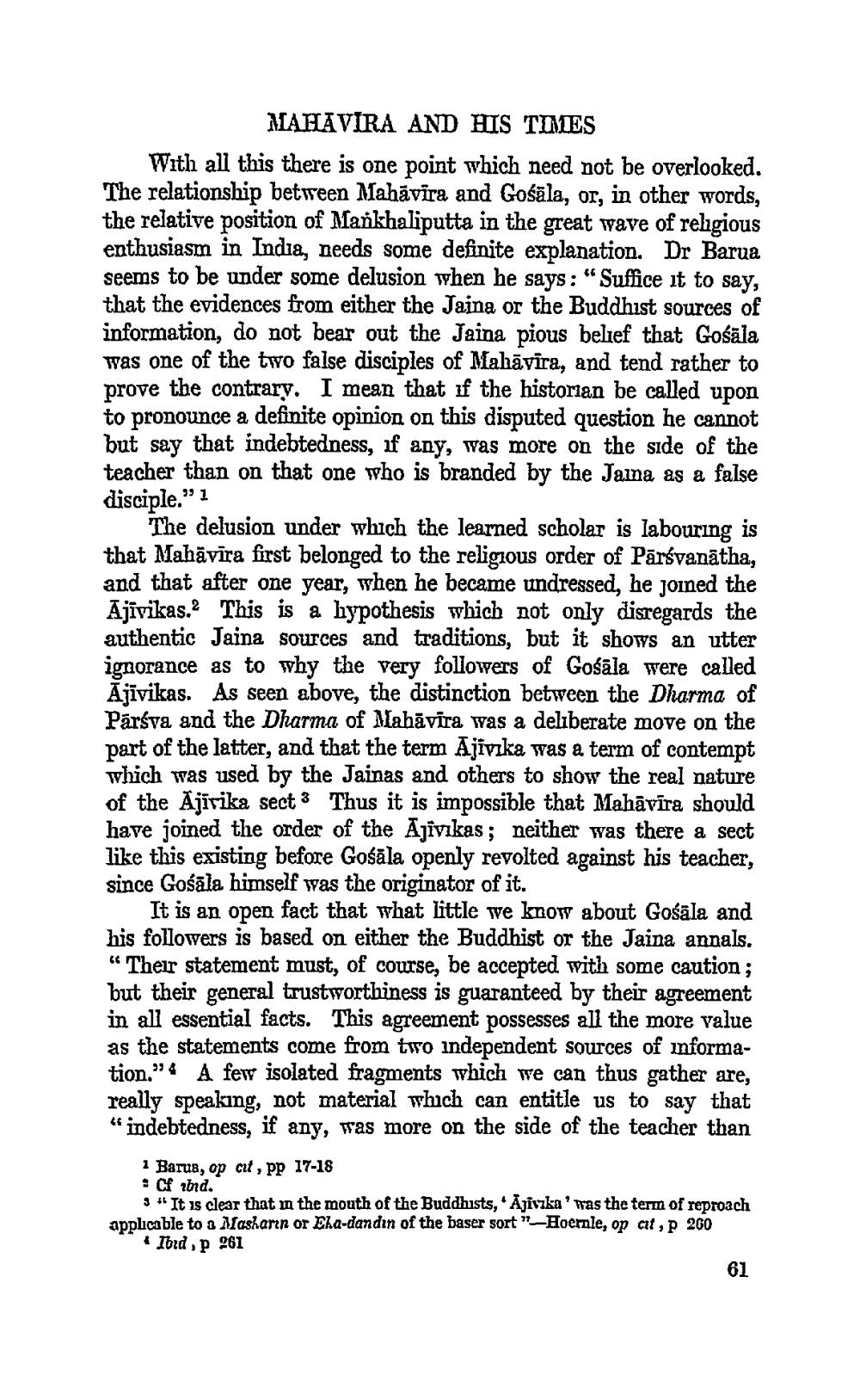________________ MAHAVIRA AND HIS TIMES With all this there is one point which need not be overlooked. The relationship between Mahavira and Gosala, or, in other words, the relative position of Mankhaliputta in the great wave of religious enthusiasm in India, needs some definite explanation. Dr Barua seems to be under some delusion when he says: "Suffice it to say, that the evidences from either the Jaina or the Buddhist sources of information, do not bear out the Jaina pious belief that Gosala was one of the two false disciples of Mahavira, and tend rather to prove the contrary. I mean that of the historian be called upon to pronounce a definite opinion on this disputed question he cannot but say that indebtedness, if any, was more on the side of the teacher than on that one who is branded by the Jamna as a false disciple." 1 The delusion under which the learned scholar is labouring is that Mahavira first belonged to the religious order of Parsvanatha, and that after one year, when he became undressed, he joined the Ajivikas. This is a hypothesis which not only disregards the authentic Jaina sources and traditions, but it shows an utter ignorance as to why the very followers of Gosala were called Ajivikas. As seen above, the distinction between the Dharma of Parsva and the Dharma of Mahavira was a deliberate move on the part of the latter, and that the term Ajivika was a term of contempt which was used by the Jainas and others to show the real nature of the Ajirika sect 3 Thus it is impossible that Mahavira should have joined the order of the Ajivikas; neither was there a sect like this existing before Gosala openly revolted against his teacher, since Gosala himself was the originator of it. It is an open fact that what little we know about Gosala and his followers is based on either the Buddhist or the Jaina annals. "Their statement must, of course, be accepted with some caution; but their general trustworthiness is guaranteed by their agreement in all essential facts. This agreement possesses all the more value as the statements come from two independent sources of information." 4 A few isolated fragments which we can thus gather are, really speaking, not material which can entitle us to say that "indebtedness, if any, was more on the side of the teacher than 1 Borus, op cul, pp 17-18 : Cf rond. 3 " It is clear that in the mouth of the Buddhists, Ajitzka' was the term of reproach applicable to a Masharin or Eha-dandin of the baser sort "-Hoernle, op cit, p 260 Tord, p 261




